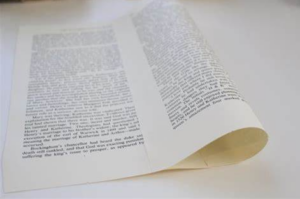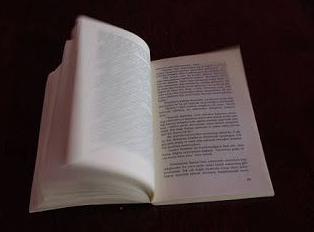|
Getting your Trinity Audio player ready...
|
Modern Literature stands as a captivating and transformative era in the world of literary arts, characterized by a departure from traditional conventions and an embrace of innovative ideas.
This article unveils the essence of Modern Literature. It sheds light on its defining features, and thematic explorations, as well as the impact of technological advancements. As we journey through the pages of modern literary masterpieces, we witness the evolution of storytelling. We witness its profound reflection of the ever-changing human experience.

The Evolution of Modern Literary Movements
Modern Literature emerged as a response to the significant shifts in societal, cultural, and political landscapes during the late 19th and 20th centuries. It birthed numerous literary movements, each challenging the status quo and paving the way for experimentation and creativity. From the stream-of-consciousness narrative of Modernism to the raw realism of Postmodernism, these movements redefined storytelling and offered fresh perspectives on the human condition.
In the wake of industrialization and rapid urbanization, authors explored themes of alienation, existentialism, and disillusionment, mirroring the uncertainty of the modern age. Prominent figures like James Joyce, Virginia Woolf, Franz Kafka, and Samuel Beckett pushed the boundaries of language and form, enriching the literary landscape with their visionary works.
Themes and Motifs in Modern Literature
Central to Modern Literature are the compelling themes and motifs that resonate with readers across generations. The exploration of individualism, identity, and the search for meaning becomes a recurring motif in various works. Authors delve into the complexities of human relationships, societal norms, and the fragility of human existence, inviting readers to question the essence of their own lives.
The representation of time and memory also assumes a significant role in Modern Literature. Works like “Mrs. Dalloway” by Virginia Woolf and “One Hundred Years of Solitude” by Gabriel Garcia Marquez employ nonlinear narratives and intricate time shifts, weaving past and present into a seamless tapestry of emotions and experiences.
Innovative Writing Styles and Techniques
Modern Literature thrives on its groundbreaking writing styles and techniques that challenge traditional narrative structures. Stream-of-consciousness, pioneered by James Joyce in “Ulysses,” delves into characters’ innermost thoughts and emotions, creating an immersive and introspective reading experience. Similarly, the fragmented narratives in T.S. Eliot’s “The Waste Land” mirror the fragmented nature of the modern world.
Metaphorical language, symbolism, and allegory also enrich the literary tapestry of Modern Literature. These devices allow authors to convey profound meanings and complex emotions beyond the surface of their words. Writers like Franz Kafka and Jorge Luis Borges masterfully utilize these techniques to create enigmatic and thought-provoking narratives.
The Role of Technology in Modern Literary Expression
The advent of technology, particularly the widespread use of computers and the internet, profoundly influences Modern Literature. Writers engage with technology not just as a subject of exploration but as a means of literary expression itself. The rise of cyberpunk fiction, for example, envisions dystopian futures where technology dominates every aspect of human life.
Authors experiment with new forms of storytelling, such as interactive narratives, hypertext literature, and digital poetry. These innovative formats invite readers to actively participate in the narrative, blurring the line between reader and author and redefining the traditional concept of a linear narrative.
Contemporary Authors Redefining the Literary Landscape
Modern Literature remains an evolving canvas, with contemporary authors adding fresh brushstrokes to the literary landscape. Renowned writers like Chimamanda Ngozi Adichie, Jhumpa Lahiri, and Murakami continue to captivate audiences with their profound storytelling and rich character development.
Additionally, the advent of self-publishing and online platforms has democratized the literary world, allowing aspiring authors to share their voices with a global audience. The ease of digital publishing has sparked an influx of diverse narratives, offering readers a treasure trove of literary experiences.
The Impact of Globalization on Modern Literature
Globalization serves as a catalyst for cultural exchange, transcending borders and shaping the themes and perspectives found in Modern Literature. Authors draw inspiration from different cultures, traditions, and experiences, infusing their works with a rich tapestry of global influences.
Moreover, the interconnectedness facilitated by globalization has enabled the dissemination of Modern Literature to a broader audience. Literary works from different corners of the world find resonance among readers worldwide, fostering cross-cultural understanding and appreciation.
Modern Literature – A Reflection of Societal Changes
Modern Literature acts as a mirror to society, capturing its aspirations, fears, and triumphs. As authors chronicle the evolution of human experiences, they document societal changes and upheavals, creating a collective memory of our shared history.
From the upheaval of two World Wars to civil rights movements and cultural revolutions, Modern Literature records the resilience and resilience of the human spirit. Through literature, generations are connected, and the human experience becomes a continuum of emotions, ideas, and aspirations.
A Contemporary Theme in Modern Literature
Even in the world of literature, the influence of contemporary societal trends and technological advancements seep into the narrative. As online casino gambling gains popularity, it has found its way into the realms of Modern Literature. In some works, authors explore the psychological allure of gambling and its impact on individuals and communities.
In stories that delve into the world of casino gambling, authors may touch upon themes of risk, addiction, and the search for fortune. These narratives often serve as cautionary tales, shedding light on the consequences of unchecked gambling behaviors while exploring the complexities of human desires.
Conclusion
Modern Literature stands as a testament to the ever-evolving human spirit, exploring the nuances of the human experience across cultures, ideologies, as well as the time periods. Its enduring legacy lies in its ability to captivate and challenge readers, provoking introspection and inspiring change.
As we celebrate the boundless creativity and innovation of Modern Literature, we embark on a timeless journey. Here, each turn of the page reveals a new facet of our shared humanity. Modern Literature remains an ever-present beacon illuminating the path towards understanding and empathy. From the revolutionary words of the past to the contemporary narratives of the present!
